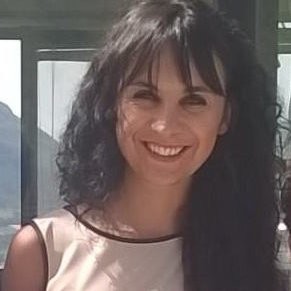Zapraszamy na referat dr Jessici Marii Chicco – University of Torino (Italy) pt.:
„Shallow geothermal energy as part of a hybrid heating system for an innovative greenhouse in NW Italy: how to reduce energy consumptions, optimizing investment and operative costs„.
Seminarium odbędzie się w czwartek (16 listopada, godz. 13.00, sala 13, A0 wysoki parter) w trybie stacjonarnym, jak również na platformie Teams.
Jessica Maria Chicco is currently working at the University of Torino (Italy) as Researcher, non tenured Assistant Professor. The research activity is mainly focused on geothermal energy for thermal energy production, in district heating and cooling contexts (3d numerical simulations of the thermal behaviour throughout a geothermal pipe and around it; analysis of thermo-physical properties of experimental geothermal grouts, soils and rocks; Underground Thermal Energy Storage (UTES) Systems).
Abstract
Greenhouses are one of the higher energy-consuming sectors in farming, representing an important source of the energy demand. Heating accounts for 70/85% of the total energy consumption as one of the largest operating costs for the maintenance of a greenhouse, after labour and plant materials. The amount of thermal energy needed for heating mainly depends on the climate of the specific area, as well as on the greenhouse design and on the cultivated crop. In this framework, geothermal energy plays a very important role to maintain the desired temperature, reducing energy consumption, and allowing for a more economic and sustainable agricultural productions.
This work deals with the analysis of the geological, hydrogeological, and thermo-physical properties of the underground soils at different depths, aimed at designing of a shallow geothermal plant as part of a hybrid heating system for an experimental greenhouse located at the Department of Agriculture of the University of Turin. In particular, the base load is expected to be met by the use of geothermal heat pumps, while the peak load is expected to be supported by the support of a gas condensing boiler; therefore, the whole energy need is expected to be satisfied by the geothermal energy for the 97% and by a gas condensing boiler for the remaining 3%. This configuration is then expected to be reached only during specific hours of a day over colder months (from December to February), when external temperatures are less than 3°C.
Based on this approach, the energy efficiency of this kind of hybrid plant and its economic sustainability can be proved optimizing both investments and operative costs than conventional heating systems. Aimed at designing the shallow geothermal plant as part of the hybrid heating system geological, hydrogeological, and thermo-physical characteristics of the ground were defined through specific field surveys. Furthermore, numerical simulations through the use of the FeFlow software, were conducted in order to well defined ground properties at different depths; these simulations also provided data about the thermal energy storage and production during on and off plant cycles. The results showed a thermal power of 50.92 kW over 120 days of plant operation, in line with the expected energy needs to meet the base load demand. Long-term results further ensured a negligeable impact on the ground, with a thermal plume between 5 and 10 m from the plant, reducing substantially in a few months after switching off the plant.
A specific economic analysis based on the costs before the year 2022 and, thus, before the current European geopolitical situation, was also conducted. This analysis was supported by a detailed design of the shallow geothermal plant, which allowed the right number of the geothermal boreholes (BHEs) to be deduced, as well as their depth and their distance, while limiting the initial investment costs and meeting almost all the energy needs.

